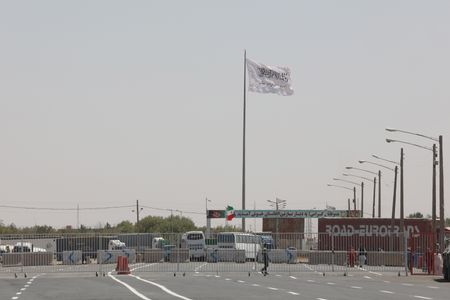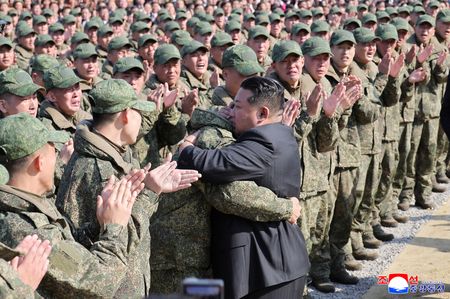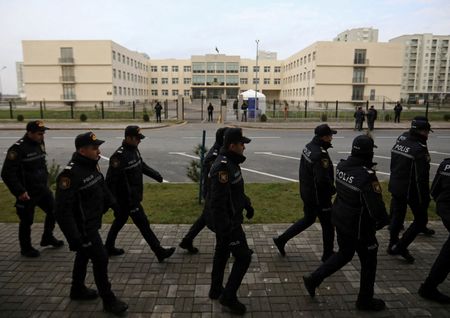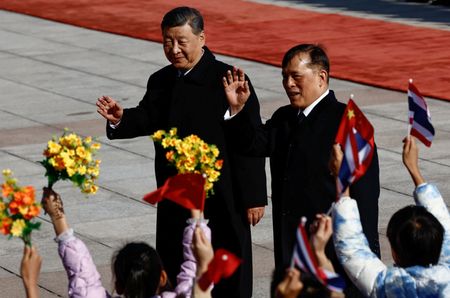By Ariba Shahid
KABUL (Reuters) -Landlocked Afghanistan is leaning more heavily on trade routes through Iran and Central Asia to reduce dependence on Pakistan, officials said, as tension between the neighbours escalates, with their border closed in recent weeks.
Afghanistan’s reliance on Pakistan’s ports has long given Islamabad leverage to press Kabul over Pakistani militants sheltering across the border.
But Afghanistan is increasingly making use of Iran’s concessions to shift freight to its Indian-backed port of Chabahar, bypassing Pakistan and avoiding recurring border and transit disruptions.
“In the past six months, our trade with Iran has reached $1.6 billion, higher than the $1.1 billion exchanged with Pakistan,” Abdul Salam Jawad Akhundzada, a spokesman for the commerce ministry, told Reuters.
“The facilities at Chabahar have reduced delays and given traders confidence that shipments will not stop when borders close.”
THREE-MONTH DEADLINE
Traders have three months to settle contracts in Pakistan and shift to other routes, said Mullah Abdul Ghani Baradar, Afghanistan’s deputy prime minister for economic affairs.
Accusing Islamabad of using “commercial and humanitarian matters as political leverage”, he said Afghanistan would not mediate disputes after the deadline and ordered ministries to stop clearing Pakistani medicines, citing “low-quality” imports.
The biggest shift is to Chabahar, used since 2017 under a transit pact with Iran and India. Afghan officials say incentives from tariff cuts and discounted storage to faster handling are drawing more cargo south.
Iran has installed updated equipment and X-ray scanners, while offering Afghan cargo a 30% cut in port tariffs, 75% off storage fees and 55% off docking charges, said Akhundzada, the commerce ministry spokesman.
PAKISTAN SEES NO HARM FROM AFGHAN DECISION
Afghanistan’s decision would cause no economic harm to Pakistan, Defence Minister Khawaja Asif told Geo News.
“Afghanistan can trade through any port or country,” he said.
However, Commerce Minister Jam Kamal Khan told Reuters, “We cannot compromise on security.”
India has stepped up engagement with Afghanistan’s ruling Taliban, hosting acting foreign minister Amir Khan Muttaqi and broadening humanitarian assistance.
It runs key terminals at Chabahar, which it sees as a strategic link to Afghanistan and Central Asia. In October, the United States gave New Delhi a six-month sanctions waiver to keep running the port.
CENTRAL ASIA CORRIDORS EXPAND
Afghanistan has boosted shipments through Turkmenistan, Uzbekistan and Tajikistan, routes it says are growing faster than Pakistan’s.
As advantages Akhundzada cited new transit deals, lower border costs and offices at Milak and Zahedan, Iran’s main border crossing points for Afghan trade.
But Pakistan is still the fastest route to the sea, with trucks reaching its southern port of Karachi in three days. Its exports to Afghanistan neared $1.5 billion in 2024.
Islamabad says closures curb militant movement; Kabul denies providing safe haven to the militants.
(Reporting by Mohammad Yunus Yawar in Kabul and Ariba Shahid in Karachi; Editing by Clarence Fernandez)










